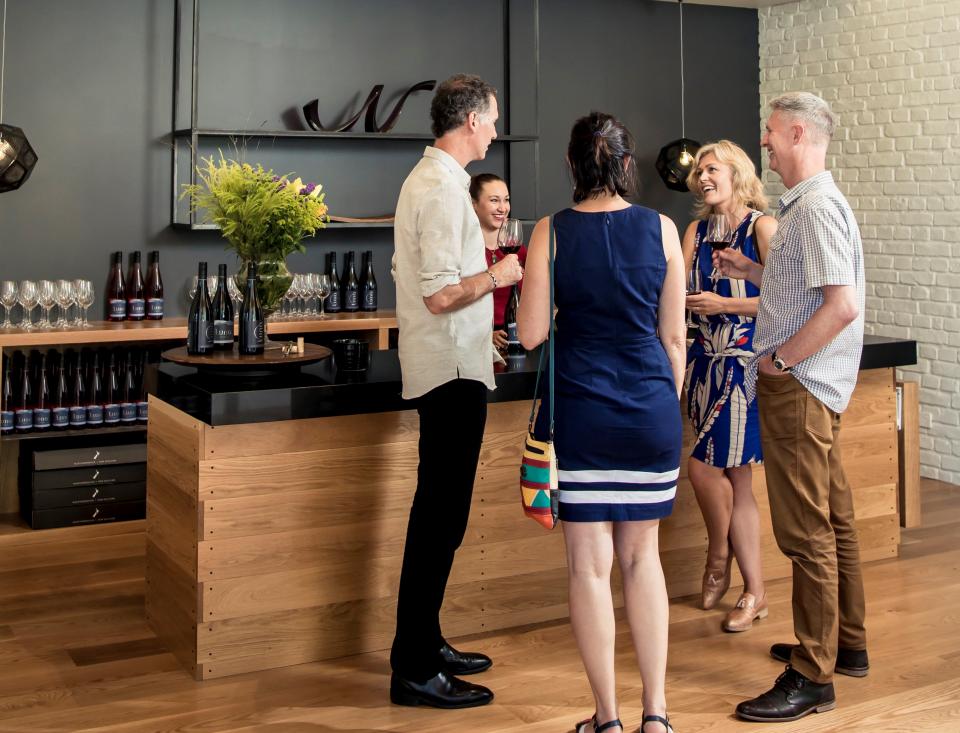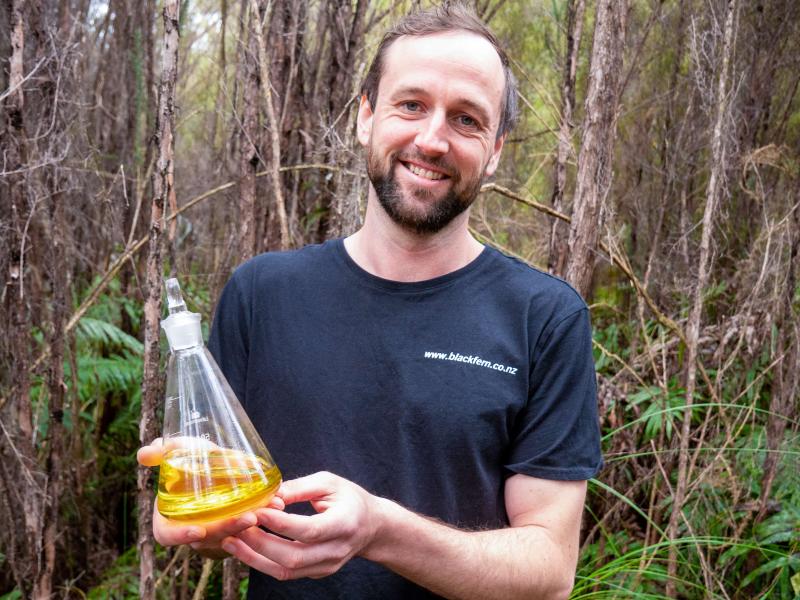Replacing perfectly good vines with a new variety and repositioning brands is a bold, potentially risky thing to do for any vineyard. But Martinborough’s Luna Estate has pulled it off magnificently, and now the world beckons.
You have to admire Charlie Zheng. Over the past seven years the Wellington-based investor and wine enthusiast has backed himself and his team to totally reinvent two formerly Sauvignon-Blanc dominated Martinborough wineries and convert 85 percent of them to Pinot Noir (with Chardonnay, Syrah, Pinot Meunier, Riesling and Pinot Gris completing the portfolio).
It was a decision based purely on Martinborough’s reputation as one of the world’s premier Pinot Noir regions. The secret is out – the lower Wairarapa is only one of a few areas in the world with the right mix of conditions to grow quality Pinot.
Why would you take on Marlborough’s Sauvignon juggernaut in a region less suited to the varietal? Why wouldn’t you play to your strengths and consolidate your offering?
Sales and marketing manager Rick Lindsay in his 18 months at Luna Estate has witnessed the transformation of the vineyards and fully gets the reasoning behind Charlie’s bold decision.
“We see the market growing in appetite for Pinot Noir, especially from a cool climate region that can produce elegant balanced expressions with moderate alcohol levels,” explains Rick. “Sauvignon is also less tolerable to aged vintages, meaning that sales throughput must happen pretty much in a vintage-to-vintage cycle – placing pressure on the sales pipeline.
“Pinot Noir on the other hand is more forgiving, improving with two to three years in bottle. So pressure on immediate sales is lower.”
It costs big money to pull vines, and the replanting programme is expected to continue over the next three years – so the decision was not taken lightly.
Along with the switch in varietals, the Luna Eclipse vineyard and cellar door on the outskirts of what Rick describes as “the coolest little wine village in the world”, has designed and installed a multi-purpose kitchen, created a new outdoor courtyard for alfresco dining, and is planning a large multi-purpose venue space next to the cellar door.
The natural amphitheatre at the vineyard will continue to be used as a venue for international and local concerts and events, such as the annual TOAST Martinborough wine, food and music festival.
Although the overall domestic wine market is flat (according to a NZ Winegrowers report), Rick says it’s still a priority for Luna Estate, and is targeting up to 30 percent of its sales volume for the local market.
“Every New Zealand winery worth its salt wants to be accepted on a local level and we are no different.”
He admits there is more risk in being a niche producer in a small market like New Zealand, and sees markets on both side of the Tasman continuing their hunger for more international wines.
However, he also sees a trend towards lower alcohol and more elegant wines that don’t dominate proceedings.
“Martinborough’s cool climate style fits nicely here.”
With Charlie’s links to China, it’s only natural that he would look there first to showcase Luna Estate’s Pinot Noir – wine he first acquired a passion for after graduating from Victoria University.
He loves the way wine can cross cultures, and represent the qualities of the place and land where it comes from. Being able to share this with his birth country and other parts of the world is both “pleasing and satisfying”. Now he gets to invest locally and trade globally.
His knowledge of the China market has been invaluable in gaining access too. Red wine no longer means Bordeaux varietals and Pinot Noir and Syrah are beginning to find favour there.
“China has stopped looking at the Old World and through education [people are] starting to back their own opinions,” explains Rick, “looking at wine and food matching as an art.
“With the average Chinese banquet serving upwards of 20 to 30 dishes this is not always easy to do!”
The road ahead
For the past 20 years New Zealand’s wine exports have been on a growth trajectory that’s the envy of the world’s producers. The NZ Wine Growers target for 2020 is $2 billion in sales, says Rick, but the key to achieving that is maintaining our premium price points – also the envy of the world.
“In the UK for example we are only second to France for average price per bottle in both the off- and on-premise channels. When you think about our competition this is a remarkable and amazing statistic.”
In terms of Luna Estate’s marketing and export strategy, Rick says it’s based around the brand’s story – “communicated with labels and vineyard provenance”.
“It’s telling the story of owner Charlie Zheng, Joel Watson our winemaker, and all the amazing people around us who are committed to bringing out the best of our assets.
“We will continue to attend trade shows in Australasia and greater Asia. We will enter some shows but see peer review as a better way forward.
“The local TOAST Martinborough wine and food festival is also very important to us – we love collaborating with our local wineries to showcase the best the region has to offer,” he adds. “Once we get established in these markets we’ll then look at traditional markets such as the UK and US.
“We are mindful of walking before we run and not spreading ourselves too thin.”
China is an ongoing work in progress for Luna Estate and Rick has been learning fast about a market that takes no prisoners. His advice for fledgling exporters is to have a partner on the ground, preferably with a financial interest. “They will be invaluable as the market is changing so quickly.
Target your demographic; get to know some taste makers and educators; find out what’s hot and what potentially they see as emerging trends, he says.
“Most importantly, don’t treat China as one whole market, it’s simply too big and diverse to tackle at once.”
Rick agrees that tier-two cities are where the new opportunities are. “Also, use government agencies such as NZTE who have locally-based managers ready and willing to give you as much help and assistance as you ask for.”
Meanwhile under the cooler autumn skies at Luna Estate, expectation is high.
There’s a lot riding on those newly planted Pinot Noir vines.
This article first appeared in the May 2018 issue of NZBusiness magazine.





